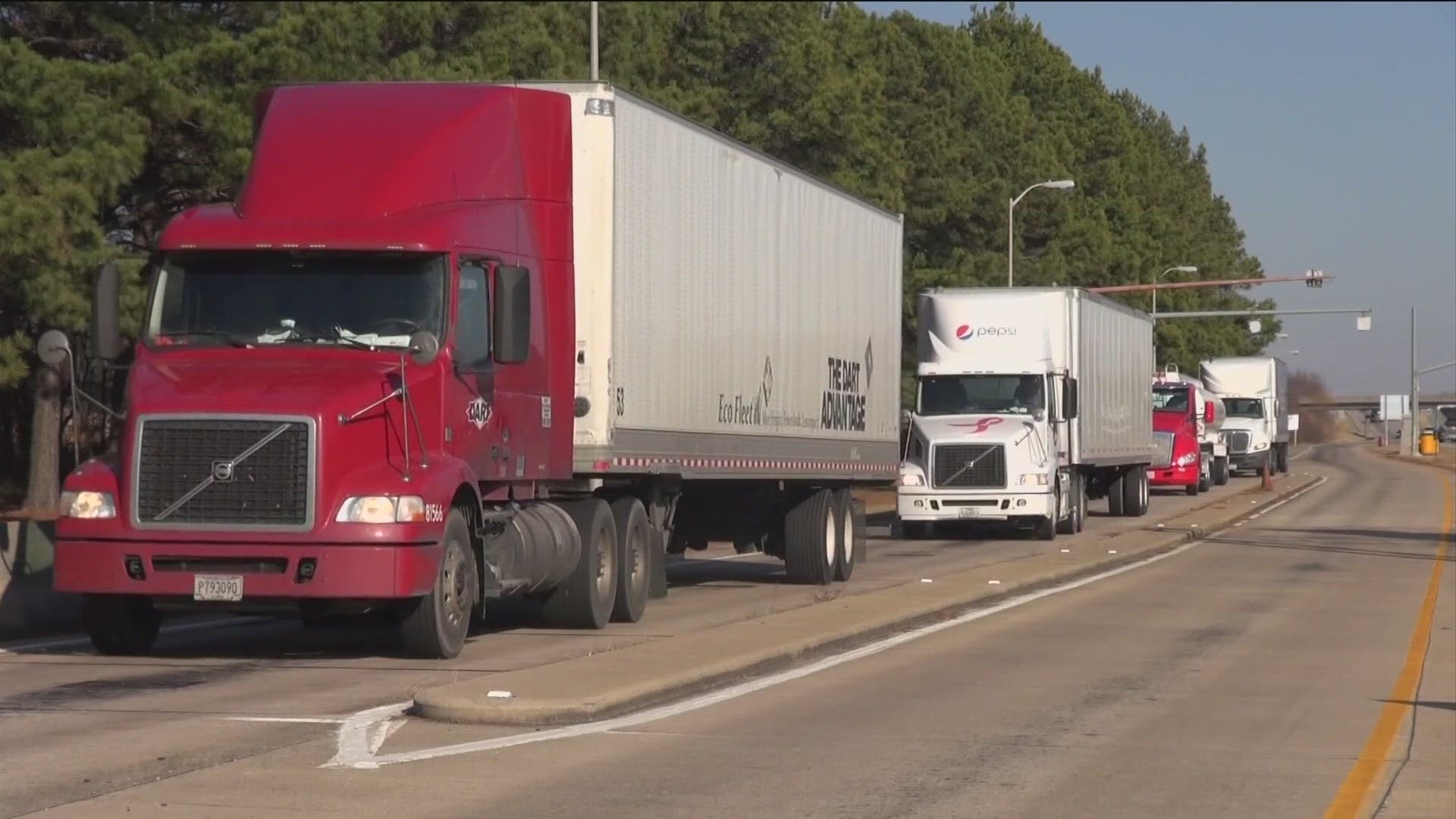ARKANSAS, USA — Spanish version: Para español haga click aqui.
A new national labor rule, which is expected to take effect March 11, will redefine work for independent contractors in Arkansas.
The Biden Administration enacted a new labor rule on Jan. 9 that aims to prevent misclassification of workers as independent contractors. A part of the new labor rules focuses on the way the U.S. Department of Labor and federal judges decide whether workers have been properly classified as independent contractors.
Janitors, home-care workers, construction workers, and now truck drivers could be considered employees rather than independent contractors under the new rule.
Specifically, most trucking companies generally use drivers who are considered independent contractors.
The U.S. Department of Labor says the new rules are designed to make sure these independent contractors receive the wages they've earned.
“Misclassifying employees as independent contractors is a serious issue that deprives workers of basic rights and protections,” Acting Secretary of Labor Julie Su said when the rule was first announced in January. “This rule will help protect workers, especially those facing the greatest risk of exploitation, by making sure they are classified properly and that they receive the wages they’ve earned.”
However, Arkansas Trucking Association President Shannon Newton says there are already methods in place to ensure that happens.
"If you want to get a job driving a truck, you can get a job driving a truck just about on every corner in Arkansas," Newton said. "And so it's that individual's choice as to whether or not they want to be an employee of a trucking company, or whether they want to own or operate their own small business, and this rule will potentially take away that choice."
Newton also says the new rule will further increase the cost of shipping by truck.
"It's going to make the capacity much more rigid, which is going to cause the cost to go up," she said. "If you think about a large company being able to utilize owner-operators, I use the term flex, they can flex the size of their fleet up or down to meet a customer's demand, and so they have predictable pricing in that way. If you aren't able to flex the size of your fleet up or down to meet a customer's needs, then you've got hard costs that are associated with owning, you know, X amount of trucks."
Newton predicts that larger trucking firms like J.B. Hunt, PAM Transport, and ABF Freight won't be affected too harshly by this new rule.
"They have the resources to navigate what the regulation is to employ, you know, the attorneys and put those kind of safeguards in place ... The companies that are really going to be at the most disadvantage are those midsize fleets, those are operating, you know, three or four or 500 trucks because they're utilizing owner-operators in order to go after a particular line of business and customers," she said.
Although larger companies won't be impacted as much, Newton anticipates several lawsuits will be filed to keep this from starting on March 11.
Watch 5NEWS on YouTube.
Download the 5NEWS app on your smartphone:
Stream 5NEWS 24/7 on the 5+ app: How to watch the 5+ app on your streaming device
To report a typo or grammatical error, please email KFSMDigitalTeam@tegna.com and detail which story you're referring to.

